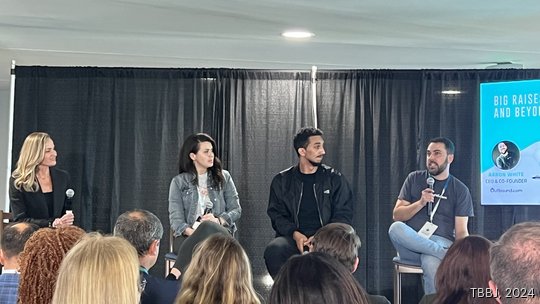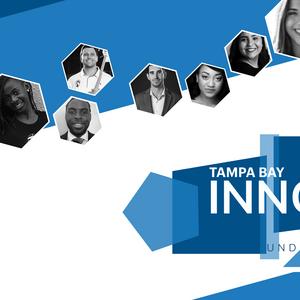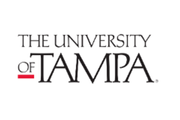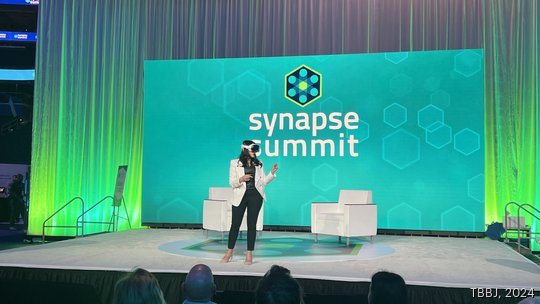
In Synapse CEO Lauren Prager's opening speech, she encouraged the crowd to consider the return on investment for attending the Synapse Summit on Feb. 28.
For some, the returned value might have been networking or bringing attention to their business. But a central payout for attendees is the domain expertise shared between the dozens of speakers and panelists.
Tampa Bay Inno collected these insights from experts at the Synapse Summit sessions below.
On moving to Tampa Bay
- "One of the other things that's really hard to do ... as a business leader is to make change when things are going really well. Our business was exploding year after year, we were the largest grower in the independent wealth space. ... one of our biggest expenses, obviously, was the fixed cost for people, as well as real estate. Back in 2018, we started the journey by looking at different places in the business. My wife and I did 40 trips with the leadership team in the business. And we looked at all the cities you read about or hear about; Nashville and Charlotte, [Kentucky] ... But every time we kept coming to the Tampa Bay region. And here in Tampa. I felt like we were getting a community," said Shirl Penney, the founder and CEO of Dynasty Financial Partners in St. Petersburg.
- "It's important that we focus on the story around Tampa Bay. As a new person in town, I sometimes see a little bit of competitiveness between Tampa, St. Pete and some of the other communities. This is a global economy. We're not competing against some of those cities — Charlotte and Nashville and others. We're competing against Hong Kong and Singapore and so many places, London, around the world. We have to leverage what's great about all of the community and make sure we're telling that story," said Penney.
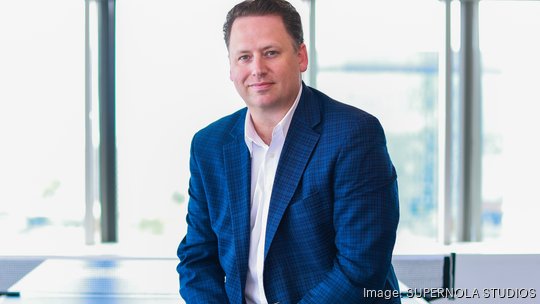
On building successful healthtech
- "I was also recently reminded at one of our meetings where we met new leaders. And she said, 'Well, if I want information, I just go out to TikTok and watch a video.' I'm not sure that's the source of truth for health care, but it does say a lot about where people are going to get information. It reminded me: We have to become relevant to the consumer and really understand where the consumer is going," said Scott Nygaard, COO of Lee Health.
- "2024 — it truly is a tale of two cities. There are a lot of investors with a lot of capital who are looking for deals to do well; we're all very active. Companies that are growing, companies that are achieving scale — those are companies that are still able to attract capital, in my view, at high valuations. The companies that are struggling don't have a runway or don't have a clear path or aren't seeing adoption and don't have growth, they're still going hungry. So there's a split in the market," said Brian Model, a managing partner at Topmark Partners.
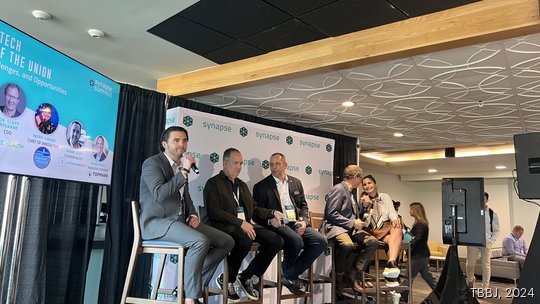
On capturing the space economy
- "With the increase in commercial supply chains, tech from chips to processors being able to handle more straining situations ... you can now make [difficult, rugged spaces] commoditized and available. So if I want to go build something, a spacecraft or satellite going up in space, I can now. There's an accessible supply chain for me to be able to pull in. So that's the tech pull reason. Then there's the cost of access to space opportunity. And if you put those equations together ... my view is that we're going to begin to see that kind of competition and opportunity extend beyond this sort of lower area regime as the cost goes down. ... The important thing for you if you're a startup or investor is that time matters. You can have the right idea and the wrong time," said Preston Dunlap, the CIO of Arkenstone Ventures.
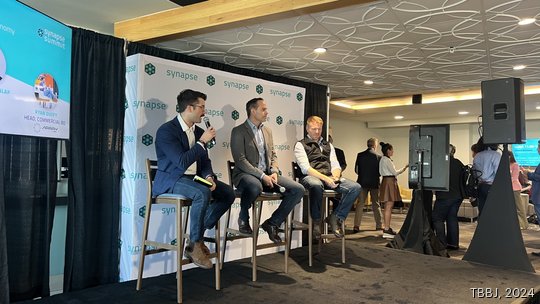
On how to get involved with climate tech
- "You don't have to have a marine science degree or a Ph.D. to do this work. That is the whole point. The future in this space is interdisciplinary, and we need more people who don't necessarily have the science background to do this work. One of the most successful founders we've worked with ... was a lawyer before she started her company. At the end of the day, entrepreneurship is entrepreneurship, which means being resourceful and figuring it out and most importantly, surrounding yourself with the community resources and advisers' expertise so you can make it," said Daniel Kleinman, the founder and CEO of Seaworthy Collective.
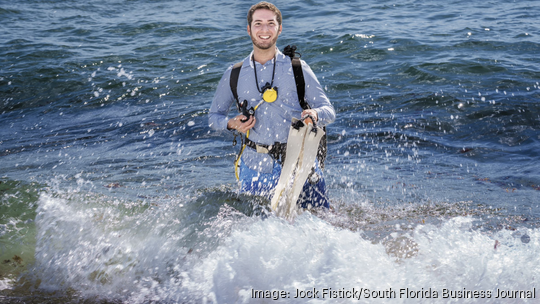
On raising and exiting
- "The biggest thing that helped raise is we got really organized, having a plan of attack to figure out who actually invests in your space and who's actually gonna be willing to write a check. Early on, where we screwed up is a funny story. ... We flew to San Francisco to meet with an investor. Got totally annihilated. It was probably the worst meeting anybody in this room has ever had. And she was just laughing and laughing and laughing us out of the room," said Jordan Walker, the co-founder and CEO of Backtrack and Yak. Walker also points to social media messaging on X as a key to meeting investors.
- "If you're starting something, [ask] what does that end look like and back into where you need to be so you know what KPIs you need to hit to get there. ... It's a different game [founders] get to play. Capital can get you really far. Advisers can also get you really far and using those people and bringing them into your team at an early stage helps so much. That's something I didn't know in the first go-round. And so, [we're] being intentional with the cap table and using it as a weapon to get us to the next raise will get us to the next plateau," said Aaron White, an exited Tampa entrepreneur.
- "If you take capital from a VC, that's with the expectation that you're building toward an exit in three to seven years, knowing that it may take time, but that's the expectation," said Sheryl Hunter, an attorney and shareholder of Tampa-based Trenam Law.
